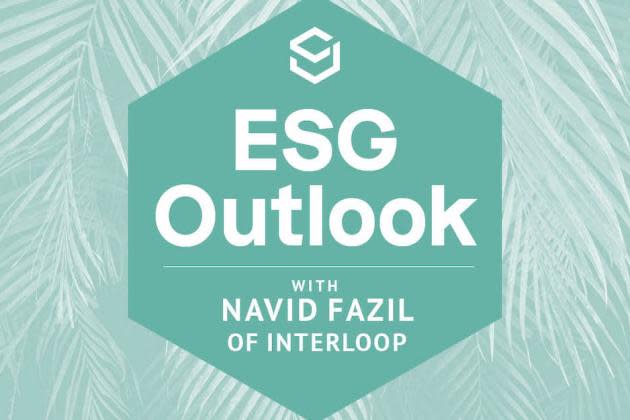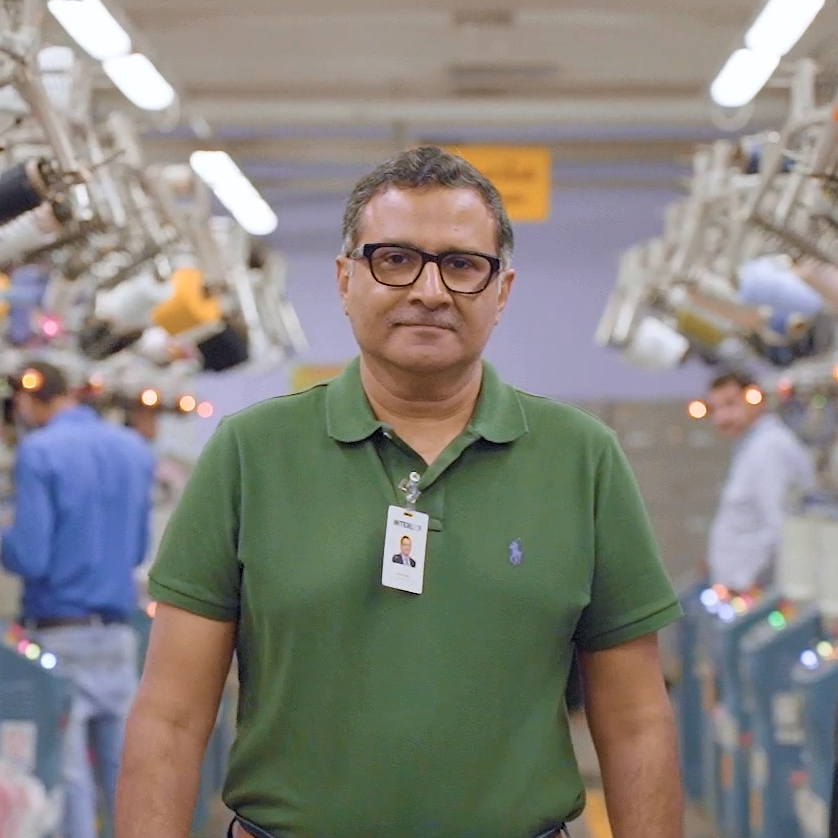ESG Outlook: Interloop’s Navid Fazil on a Fact-Based Approach to Impact

ESG Outlook is Sourcing Journal’s discussion series with industry executives to get their take on their company’s latest environmental, social and governance initiatives and their own personal efforts toward sustainability. Here, Navid Fazil, CEO of vertically integrated manufacturer of hosiery, denim, apparel and seamless activewear Interloop, discusses why it’s essential to have a fact-based, data-led approach to calculating impact, and why the voice of the manufacturer is so important.

Name: Navid Fazil
More from Sourcing Journal
Sourcing at Magic: FabScrap, Drexel University Speak to the Importance of Circular Design
Tüv Süd Tapped by Textile Exchange to Certify for GRS and RCS
Title: CEO
Company: Interloop Limited
What do you consider to be your company’s best ESG-related achievement over the last 5 years?
Our drive is to ingrain a fact-based, data-led approach to calculating our impact. We first set ourselves sustainability goals in 2015 and have been tracking them ever since. We publish our annual sustainability report in a drive to measure and transparently report our impact. This approach was further endorsed by the Science Based Target initiative (SBTi) as we became the first large-scale enterprise in Pakistan to have their science-based targets approved. Approval of these targets goes through a rigorous assessment of our emissions data, calculation methods, production plans, etc.
What is your personal philosophy on shopping and caring for your clothes?
When buying clothes, I pay a lot of attention to the quality and longevity of the garments. I am also conscious of how I use my clothes. I try to minimize the number of times a garment is washed; less washing means less water, less energy and definitely extends the life of the garment.
How much do you look into a brand’s social or environmental practices before shopping?
I am more interested in a brand’s holistic approach towards society and environment.
Anything new that you and Interloop are doing to boost sustainability beyond the fashion industry?
There are a few things that we are working on. One, we have developed a sense of personal responsibility towards the environment within our workforce. We eliminated single-use water bottles from our premises and are now getting employee suggestions which include other plastic materials used in canteens. We distributed reusable cotton bags to 30,000-plus people so they can use those bags outside of work for groceries, etc. Our aim is for every individual to be a steward of the resources they use.
We have also introduced a vegetable garden on our premises, which supplies fresh vegetables to our 150-plus onsite residents. We have been working on Interloop Organic Kapas with our first IC1 certification of 200 tons of lint. We are now working with the farmers to get their organic produce to market, which is grown as part of the crop rotation process.
Personally, I am a farmer at a heart and have been pursuing my hobby for many years. I have introduced many water-saving practices at my farm, and I am also practicing regenerative farming—taking care of the soil health.
What would you say is the biggest misconception consumers have about sustainability in fashion?
The biggest misconception is that sustainability in fashion is something that can be solved in Copenhagen or Davos. The majority of emissions within the fashion supply chain are concentrated in manufacturing processes and material extraction involving suppliers—tier 2, tier 3 and so forth. However, the conversation is mostly taking place in the Western Hemisphere within brands, retailers, consumers and legislators. The voice of the manufacturer is largely absent. Regional landscapes, availability of alternate production methods and brands investing in changing that landscape are relevant questions to be asking.
What was your company’s biggest takeaway from the Covid crisis?
Resilience—the ability to conserve resources during low time while ramping up quickly when required. Taking care of your people was the key differentiator. We did not take a short-term view and even when we had large-scale plant shutdowns, we continued to employ all our staff. This allowed us to shift gears quickly as things changed and have a motivated workforce that could respond to any challenge.
What are your company’s latest ESG-related initiatives?
Interloop Organic Kapas expansion coupled with Looptrace to provide a traceability solution to our partners; complete elimination of coal from our premises and shifting to bio-based fuels to reduce our emissions and help achieve our SBT; increasing water reuse—we are working on developing a mechanism of separating salt from our discharge so we can use it again.
As consumers become more aware of worker conditions and how clothing is produced, how can the industry best spread the word on progress?
The presence of the fashion industry at forums including global sustainability conferences is key, as are partnerships with academia to spread word of the topic among students.
What do you consider to be the apparel industry’s biggest missed opportunity related to securing meaningful change?
Decisive change in labor/human/ethical practices both on the part of the manufacturers who shy away from meaningful change unless there is a watchdog and also on the part of the brands/retailers who fail to pay due attention on the developing a truly sustainable supply chain.

